Posted on 12/15/2023
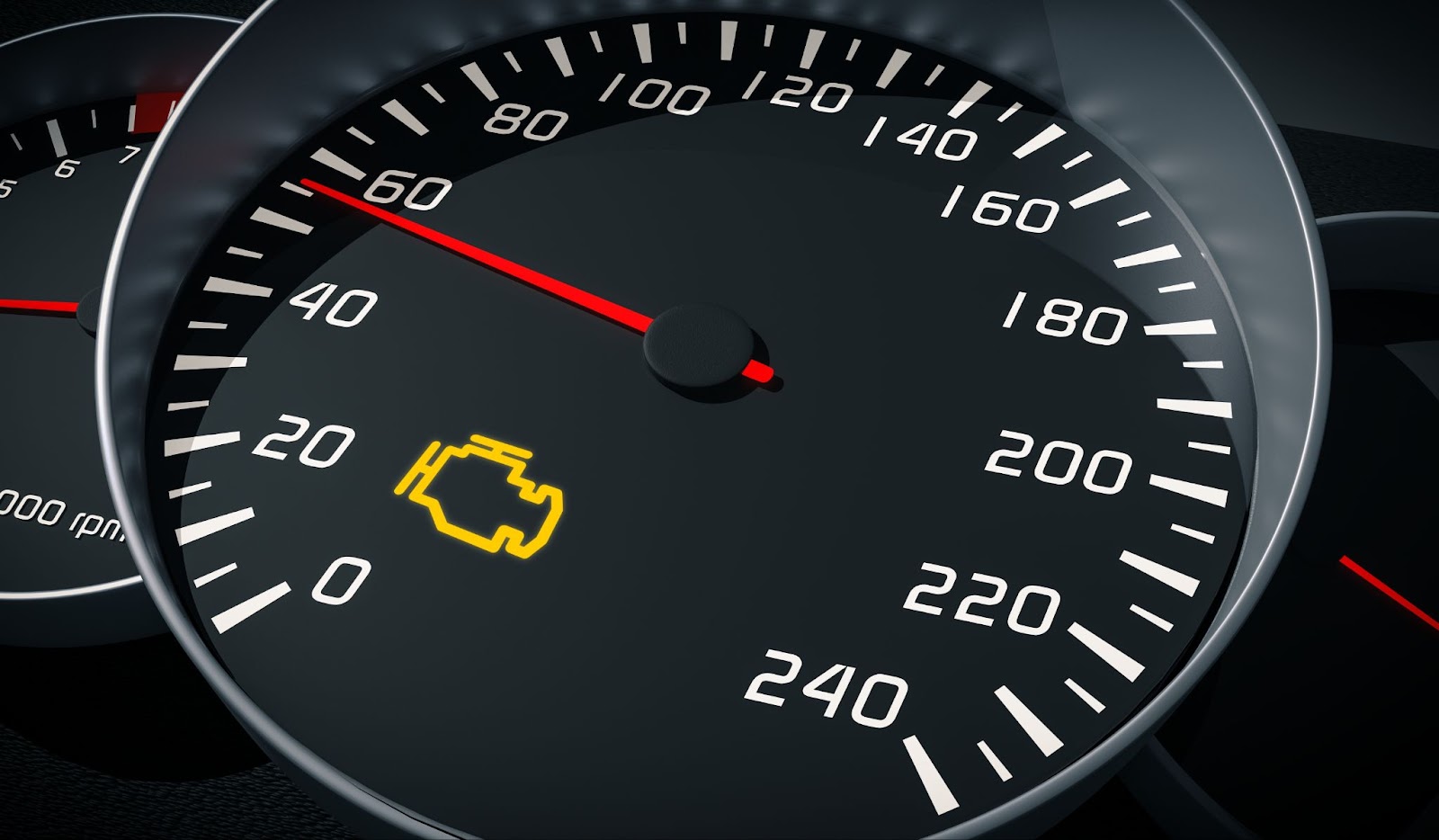
It's like a neon sign demanding your attention - we are talking about the check engine light. Sometimes it flashes, others stays solid - each having its own story to tell about your car's health. Grand Garage is here to help out with the confusing task of determining the meaning behind the check engine light and how to prevent it. The Meaning Behind a Flashing Light A flashing check engine light is like an urgent SOS from your car's nervous system. It's akin to your vehicle's way of waving a red flag. When it flashes, your car is trying to tell you, "Hey, something's seriously wrong here!" This could be a severe misfire, a catalytic converter issue, or a potentially dangerous problem that needs immediate attention. Ignoring it could lead to more significant damage and a hefty repair bill. Solid Check Engine Light Explained In c ... read more
Posted on 12/4/2023
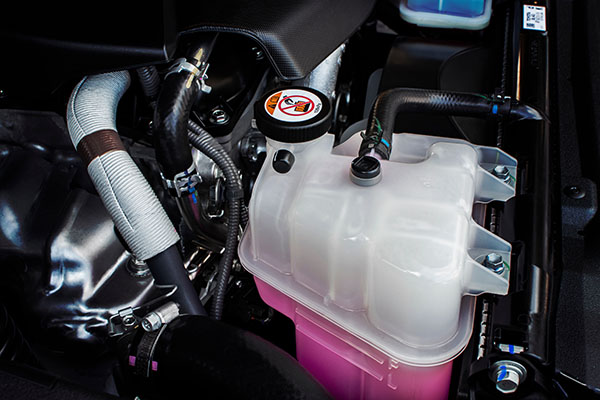
As you settle into the driver's seat, your hands on the wheel and the engine humming beneath you, it's easy to forget the intricate balance of components and fluids that propels your car forward. Yet, within the mechanical veins of your vehicle, a symphony of vital liquids choreographs a performance of power, safety, and efficiency. Below, Grand Garage will share how they work and, most importantly, how to keep them, and the components connected to them performing at their best. Engine Oil At the core of your car's power lies engine oil, the unsung force that ensures the internal components work together seamlessly. Engine oil lubricates, cools, and purifies, safeguarding against the erosive effects of friction. Routine, almost systematic oil changes keep your engine's rhyth ... read more
Posted on 9/25/2023
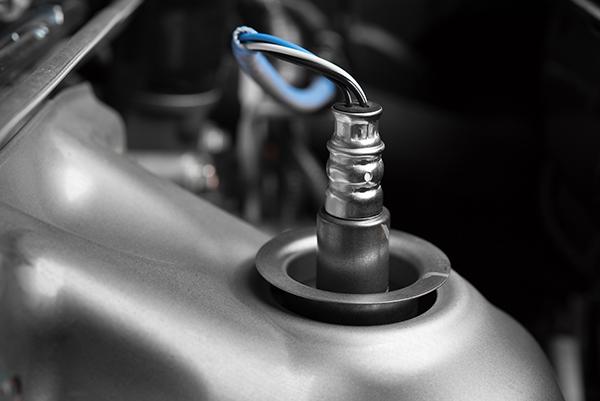
Have you ever wondered what makes your car's engine run smoothly or why it can be so fuel-efficient? The answer lies in a small yet crucial component known as the Oxygen (O2) sensor. While it's a vital part of the balance in your engine, not many people know what it actually does, or they learn about it once it needs to be changed at a repair shop. Grand Garage is here to change that and give you a little bit more information on the topic! The Silent Guardian of Your Engine Imagine your car's engine as a finely tuned orchestra and the O2 sensor as the conductor. This tiny device, often no bigger than a spark plug, is strategically placed in your vehicle's exhaust system. Its primary job? To monitor the oxygen levels in the exhaust gasses and communicate this information to your car's onboard computer. Behind the Chemistr ... read more
Posted on 9/12/2023
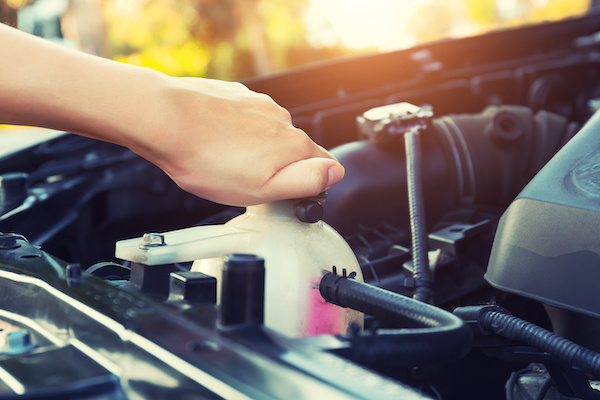
Like a refreshing drink on a scorching day, your car's engine craves coolant to keep its temperature in check. Think of the cooling system as A/C for the engine bay. Even the most reliable cooling systems maintenance and that's where the magic of a coolant flush comes into play. Understanding Coolant Flush Over time, this coolant fluid can accumulate dirt, debris, and even rust. A coolant flush, also known as a radiator flush, involves draining the old, tired coolant and replacing it with fresh, clean coolant. This process not only purifies the inner workings of your car motor but also ensures that it's ready to face the road ahead with renewed vigor. When Does Your Car Need a Coolant Flush? Your car's engine could use a coolant flush after a certain mileage or time. While manufacturers often provide recommendations, a general rule of thumb is to consider a coolant flush every 30,000 to 50,000 miles or every couple of years. However, if you notice your engine ... read more
Posted on 7/30/2023
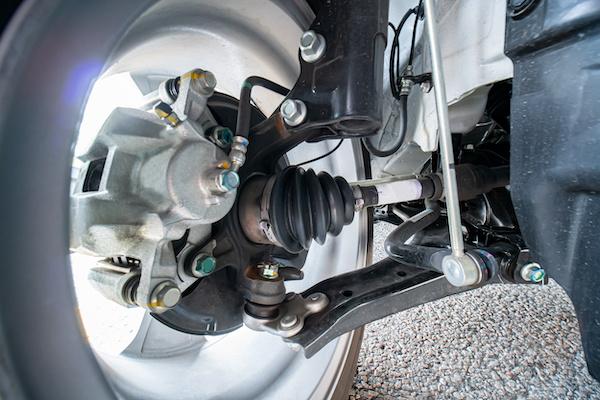
Your car's axles quietly carry out a vital role in the seamless functioning of your vehicle. Yet, despite their significance, these unsung heroes often go unnoticed until they encounter trouble. If you're unsure what vehicle axles are, read on to learn more about their importance and how to diagnose and repair common axle problems. What Are Axles and What Do They Do Axles are essential components of your vehicle's drivetrain, responsible for transmitting power from the engine to the wheels. Without axles, your car would be stationary, unable to transfer rotational energy from the engine to the wheels required for motion. The primary purpose of axles is to provide a connection between the wheels and the transmission, ensuring the smooth transfer of torque. Most vehicles have two types of axles: Drive Axles: These are found in vehicles with front-wheel drive (FWD), rear-wheel drive (RWD), and all-wheel drive (AWD). Drive axles power the wheels and rotate ... read more
Posted on 7/13/2023
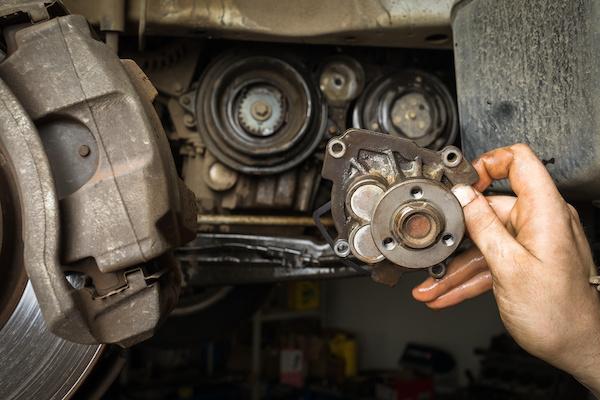
Your car's water pump is critical to the engine's cooling system. The water pump ensures coolant flows from the radiator to the engine to prevent overheating while operating the vehicle. The coolant traps heat from the engine and pushes it back to the radiator for cooling, and the process repeats. If the water pump stops working, the coolant will stop circulating, exposing your car engine and other components to overheating and other complications. Here are common signs your vehicle needs a new water pump. Sign #1: Coolant Leaks A leaking water pump is one of the most common and evident indications of pump failures and a clear sign to replace it. Coolants are usually green, orange, or red to differentiate them from other liquids in your car. Finding colored coolant on the ground where you parked your vehicle is a sign of water pump damage. The pump can wear out, crack, or loosen, causing leakage outside the engine. Sign #2: Engine Overheating A worn-out or ... read more
Posted on 6/13/2023

Most of us will be cranking up our vehicle's air conditioning up high in the upcoming months. Most people expect a refreshing blast of cool air whenever they do this. But what if you're caught off guard by an unpleasant odor that fills the cabin? If you've ever encountered this issue, you're not alone. The presence of smelly air coming from your A/C vents can be a bothersome and perplexing problem. Let's delve into the potential issues that could be at hand. One of the most common culprits for smelly air conditioning is mold or mildew growth within the A/C system. Over time, moisture can accumulate in the evaporator core, responsible for cooling the air. This moisture, combined with the dark and damp environment of the A/C system, creates an ideal breeding ground for mold and mildew. As the air flows through the system, it picks up these odorous particles and distributes them into your vehicle's cabin. Another potential reason for foul-smelling A/C air is a cl ... read more
Posted on 5/5/2023

It's every vehicle owner's nightmare: you pull out of your driveway or a parking spot and notice a pool of oil beneath your vehicle. Leaking engine oil or motor oil is a serious issue that requires immediate attention, and if left unchecked, it can cause severe damage to your car. It is so pressing because oil is necessary for lubricating your engine's moving parts; when oil leaks, the engine is susceptible to increased friction and overheating. If you're wondering what is causing the problems in the first place and what solutions to repair them, keep reading. 3 Common Causes of Engine Oil Leaks Damaged Gaskets or Seals One of the most common causes of an engine oil leak is a worn or damaged gasket or seal. Gaskets and seals are used to prevent oil from escaping from the engine. Over time, these gaskets and seals can become brittle and crack, allowing oil to seep out. Broken Oil Pan Another common cause of oil leaks is a broken oil pan or oil filter. These com ... read more
Posted on 4/6/2023
.jpeg)
At Grand Garage in Escondido, CA, we believe that the braking system is one of your vehicle's most essential safety components. Catching the signs of bad brakes can be scary, which is why it's critical to have your brakes inspected and repaired as soon as you notice unusual behaviors with your brakes. If you need some assistance, the team at Grand Garage, an Escondido auto repair shop, is here to lay out the top signs of worn brakes: Why Are My Brakes Making a Squeaking or Grinding Noise? One of the most common signs of brake problems is a squeaking or grinding noise when you apply the brakes. The unnecessary noise may indicate that the brake pads are worn and must be replaced. Why Do I Have Vibration in My Brake Pedal? If you feel a vibration in the brake pedal when you apply the brakes, it may indicate that the brake rotors are warped or damaged. Neglecting to take care of this can lead to uneven wear on the brake pads and decreased braking performance. Why Is My Brake P ... read more
Posted on 3/1/2023
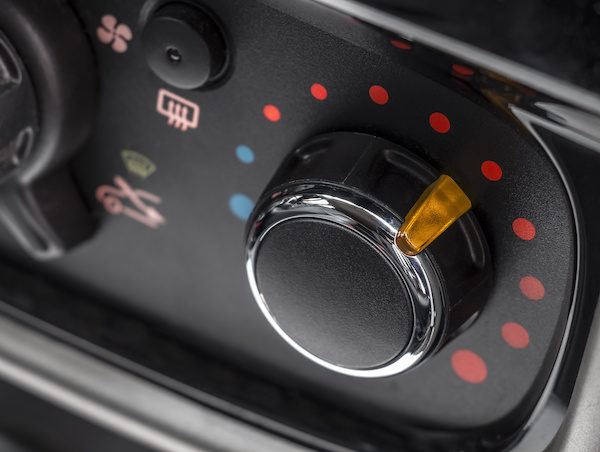
The winter mornings in Escondido, California can get pretty cold, and having a functioning car heater is essential for staying warm on the road. If you're experiencing issues with your car's heating system, it's essential to have it checked and repaired as soon as possible. Grand Garage, the top auto repair shop in Escondido, CA, offers comprehensive car heater service to keep you comfortable during the winter months. There are several reasons why your car heater may not be working correctly. Some of the most common causes include a malfunctioning thermostat, clogged heating core, low coolant levels, or a damaged blower motor. No matter what the issue is, the team at Grand Garage has the expertise and experience to diagnose and repair the problem quickly and efficiently. ● Faulty Thermostat: If your thermostat is not functioning properly, it can prevent the flow of hot coolant into the heating system. ● Blocked Heater Core: If your heater core is blocked, it can prevent h ... read more